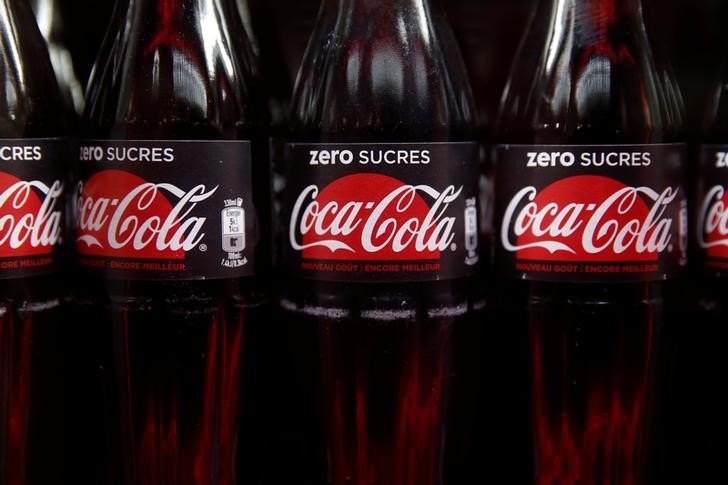Fiserv earnings missed by $0.61, revenue fell short of estimates
Investing.com -- Morgan Stanley (NYSE:MS) downgraded Coca-Cola Europacific Partners (CCEP) from Overweight to Equal-weight (EW), citing a more balanced risk-reward profile after strong outperformance over the past year.
Even after a 7% drop following weaker guidance, the stock is up 24% over the last twelve months—2,500 basis points ahead of parent Coca-Cola Co (NYSE:KO), 1,900 points above the S&P Consumer Staples Index, and well ahead of European peers.
The bank sees limited upside at current valuation levels, noting that CCEP (NASDAQ:CCEP) shares are trading at a 4-year high next twelve months (NTM) price-to-earnings (P/E) relative to Coca-Cola stock, adding that the latter offers broader product and geographic diversification.
The Wall Street firm highlighted Fairlife and other categories as examples of where the parent company may provide more attractive long-term opportunities.
Morgan Stanley also sees more compelling setups in other Overweight-rated names such as Keurig Dr Pepper (NASDAQ:KDP), citing its “compelling valuation, solid Refreshment growth, and inflecting coffee topline,” and Philip Morris (NYSE:PM), which the firm believes has the strongest mid-term growth profile among mega-cap staples.
The downgrade follows CCEP’s slight first-half miss and a reduction in its full-year 2025 (FY25) topline guidance, driven largely by weakness in Indonesia.
While CCEP now expects 3–4% revenue growth in 2025 (down from ~4% previously), it maintained its guidance for ~7% operating income growth and at least €1.7 billion in free cash flow.
Management noted improved volume growth in July, helped by stronger trends in Europe and stabilization in Indonesia, despite flooding in the Philippines.
Morgan Stanley cut its FY25/26 EPS estimates by 4% and 6%, respectively, to reflect lower topline, FX headwinds, and below-the-line items.
The price target was reduced from €87 to €83, based on an unchanged ~19x FY26e P/E.
“We are EW CCEP as we see a balanced risk/reward following the outperformance over the last twelve months (LTM) and somewhat reduced short-term topline visibility,” Morgan Stanley concludes.
